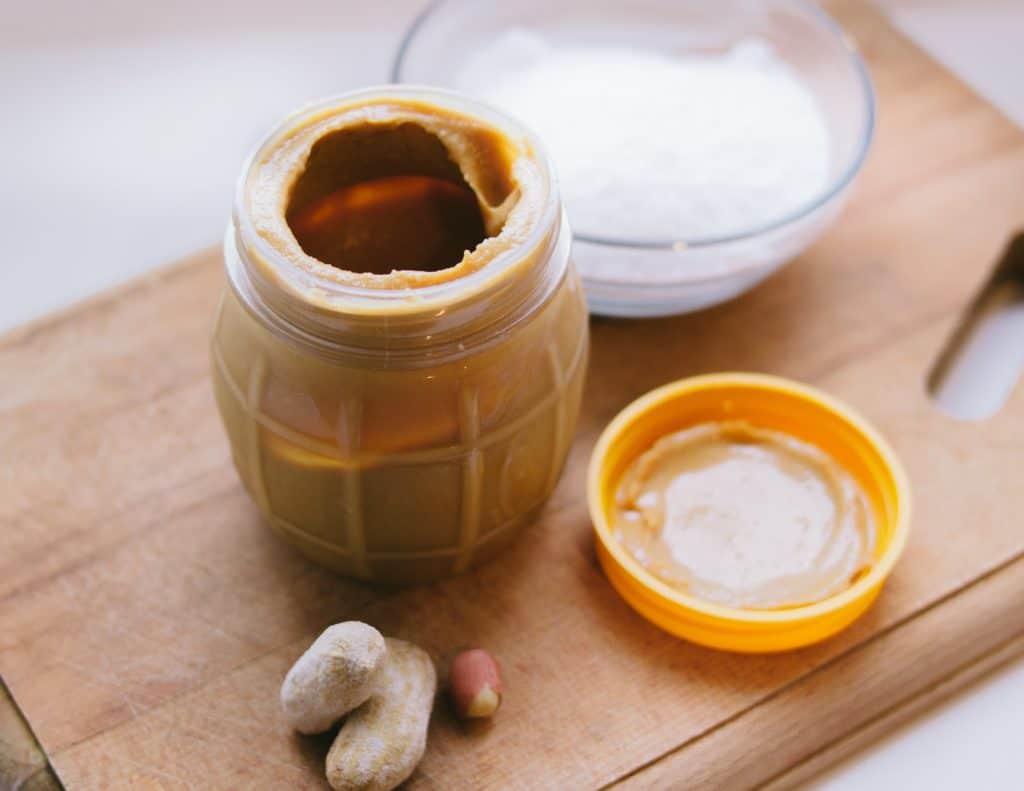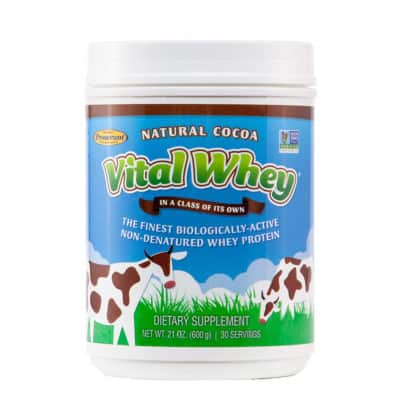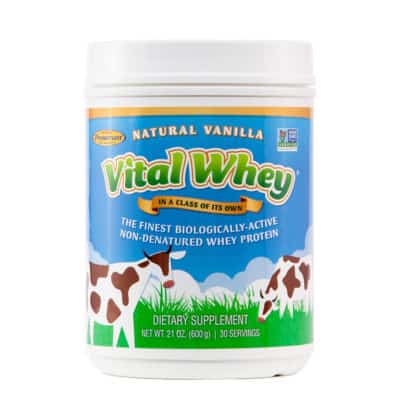
Running is a great hobby and one of the best forms of cardiovascular exercise out there. In order to be successful at it, you need to provide your body with the fuel necessary to go that extra mile.
One of the most challenging things about running is properly planning your food intake to promote optimum performance. Finding a balance between skipping a meal and running out of fuel vs. eating too much and feeling bloated or discomfort is key to perfecting the ideal runners routine. Let’s face it, almost every runner has experienced that horrible feeling of knowing you won’t be able to hit the distance you originally intended.
While it’s important to provide your body with the proper nutrients beforehand, it’s equally important to refuel after you’ve completed your run so that your muscles can begin to recover.
You may ask yourself, when does protein fit into your running nutrition plan? Is it best to take in whey protein before or after a workout?
The ideal pre-workout nutrition plan should give you energy, mostly from carbohydrates, before a workout and also nutrients to repair muscle after. Before running you need fast-acting carbohydrates to give your body energy to burn.
Once you are done, you may need some high fiber carbohydrates and a protein shake after running can be an ideal post-workout snack. Here’s what you need to know about protein shakes for runners.
Why Take Protein After Cardio
A super food in its own right, whey is a type of protein that comes from cow’s milk. It has a high biological value (actually the highest of any protein), which means it is well absorbed and used easily by the body. It is rich in all nine essential amino acids that are required from muscle repair and preservation.
A protein shake after running can be a simple and quick way to boost your energy following a tough workout. This easy to digest form of protein can be blended into shakes and smoothies, added to oatmeal or baked into protein bars. It is fast acting, so it will immediately begin to aid your body on its road to muscle repair.
A whey protein shake also pairs easily with carbohydrates. Making a smoothie with whey, a banana, and a plant-based milk of choice, is a perfect balance of nutrients you need to refuel those muscles after working out.
Is it Best to Take a Whey Protein Shake Before or After a Workout?
While there are some workouts that can benefit from protein beforehand, taking a protein shake before running is not ideal. Protein can be difficult to digest pre-run/workout, so it may feel like a ton of lead in your stomach during that run. No one wants to feel digestive distress during a long run. Because of this, it is best to take your whey after you run.

Therefore, the optimal time is after your run. If you consume protein when you return from a good long run, it will immediately get to work reviving and rebuilding your fatigued muscles. It should come as no surprise that running takes hard work and dedication, but since whey protein is fast absorbing and promotes swift muscle repair, it can be a great asset for every runner’s training and recovery regime.
Ingesting protein post run will also help the body maintain a stable nitrogen base, which is another requirement for healthy muscle growth. In most cases, people who consume whey protein after running won’t be as sore the next day and will experience increased energy levels with continued use.
Low-calorie but High Protein
Although it’s important to increase your protein intake when maintaining a runner’s routine, that doesn’t mean you pile on the calories. Finding a balance between eating to fuel while not exceeding the calorie intake is key. A perfect balance will help in supporting muscle mass and keep you energized throughout the day.
If you are going to add protein to your nutrition plan, you have to account for the additional calories it is providing. A typical scoop of protein powder has around 80-120 calories depending on the brand. If you add milk, fruit, or nut butters, you can easily increase the calorie content to 300 or more. While you may need these extra calories to refuel, it is important to remain calorie-aware if you are trying to also maintain a lean running weight.
Increasing your protein intake can play a major role in helping you achieve or maintain an ideal weight. Protein can help you stay satisfied, feed your hungry muscles, and help you maintain your weight. Protein is the most satiating macronutrient. The body uses protein for muscle repair and cell growth before using it for calories or storing it as fat.
You may have experienced this yourself when starting out your day with a high protein vs. a high carbohydrate breakfast. Eating a high protein breakfast will leave you feeling satisfied and carry you through the day without a constant need for wanting to snack or indulge. This leads you to make healthier meal/snack choices throughout the day and can curb your overall intake to create a better balance between necessary and excess calories.
A whey protein shake after running can help stave off some of the post-workout cravings. Yes, you burned a ton of calories during your running workout, but it’s very easy to eat them all back and then some. The appetite suppression effect of protein may help you control those post-run munchies so you can reach your weight goals.
Pro Tip: Introducing whey protein shake after running will provide your body with the necessary protein needed for proper muscle repair, but it will allow you to keep your overall caloric intake low in the process. This can help you maintain the lean runner’s body you need to run faster and beat the competition.
Why is muscle repair so important?
Running, like many forms of exercise, can take a toll on your muscles, especially as you start to tack on the miles. Providing your muscles with the time they need to recover will help to repair tissue and build strength, so you can keep logging those miles week after week.
Typically you should allow your muscles 24 to 48 hours to rest and repair after a workout. However, many people don’t always heed this rule. Whey protein after running can help speed the recovery process along by giving your body the raw materials it needs to repair any damaged tissue and aid in the growth of new tissue. This can help prevent injury and maintain the strength you need to keep running.
Running along with any intense form of exercise can suppress the immune system. After a heavy training session, the immune system of an athlete can decrease by 15-70%, leaving them open to illness. The last thing you need before a competition is to get sick.
Adding whey protein after a workout can help athletes maintain healthy immune function by providing the raw materials the body needs to make immune cells that fight infection.
Best Protein Powder for Runners
If you are looking for an ideal protein powder for runners, there are a few things to keep in mind. First, consider your individual nutrient needs. Do you need a shake that is higher in calories and protein to support an intense training schedule? Or are you on your off season and looking for something a bit lighter?
Second, how will you take your protein shake after running? Are you going to take the traditional approach and mix it with water? If so, the taste might matter a bit more and therefore you might want to consider a flavored option like chocolate or vanilla. If you plan on mixing your protein powder with a blend of other flavorful ingredients, a unflavored option might be perfect.
Whey protein is the fastest acting protein, which makes it ideal for refueling after a run. It also tastes great and blends easily with other ingredients. If you prefer a plant-based protein, there are other options available as well. Check out our guide to learn the differences between types of protein powders.
Finally, getting your protein after a run doesn’t have to be in the form of a shake (although liquids do get absorbed and into your muscles a bit faster). Consider creating a portable protein bar option that can help refuel your muscles without a blender. We have lots of ideas for protein powder recipes here.
Keep protein filled snacks on hand
Although training is important, good nutrition is also a vital part of being a successful runner. If you are a runner or desire to be one, keeping the correct foods on hand to fuel your run will be a key part of your training regimen.

Before your run, focus on getting enough carbohydrates (and a little fat) for energy. Great pre-run foods include: half a bagel, a small banana or apple, ½ cup of fruit, or 1/3 cup of dry breakfast cereal. These give you the fast-acting carbohydrates you need to fuel an incredible workout.
After running, although you still do need to consume some carbs, the focus of your meal or post-run snack should be protein. A whey protein shake or snack is a great way to recharge, build new muscle, and support your immune system. Pair the whey with a fast-acting carbohydrate source to optimally refuel.
As we mentioned above, if you prefer not to drink your whey, consider baking whey protein powder into muffins or homemade energy bars so that you can have them handy whenever you need a quick and easy protein rich snack to soothe your tired muscles. These can be a great on-the-go post-workout snack for when you are pressed for time or don’t have access to a blender.
An important asset to any runner’s artillery belt, whey protein can help you along as you progress from 3 miles to perhaps one day tackling a marathon. So, listen to your body, provide it with the necessary fuel, lace up your trainers and head out on the open road. But don’t forget, only take protein after running or working out!
Recommended Products:
References:
- Reynolds, M. (2013, September 10). What to Eat After Running. U.S. News & World Report. https://health.usnews.com/health-news/blogs/eat-run/2013/09/10/what-to-eat-after-running
- Veldhorst, M., Smeets, A., Soenen, S., Hochstenbach-Waelen, A., Hursel, R., Diepvens, K., Lejeune, M., Luscombe-Marsh, N., & Westerterp-Plantenga, M. (2008). Protein-induced satiety: effects and mechanisms of different proteins. Physiology & Behavior, 94(2), 300–307.
- Quinn, E. (n.d.). 10 Tips to Speed Recovery After Exercise. Retrieved January 13, 2022, from https://www.verywellfit.com/ways-to-speed-recovery-after-exercise-3120085
- Walsh, N. P. (2018). Recommendations to maintain immune health in athletes. European Journal of Sport Science: EJSS: Official Journal of the European College of Sport Science, 18(6), 820–831.
- Should You Take Whey Protein Powder After Surgery? - March 2, 2023
- How Much Protein is Too Much? - January 30, 2023
- Is Whey Protein Keto Friendly? - January 30, 2023








Great blog, good read, nice content, informative and well written. Thanks for posting.
Thanks Wip. It’s always great to hear back from our customers.
Thank you for the information about whey protein. Now i’m more enlighten how to use it.
Be sure to stay tuned Sammy to our upcoming Recipes series which should provide even more useful tools for your protein supplement needs.
Thank you for your help about whey protein,it sure help me out,I Am 64 years old been running for a long time, But was not sure about taking whey protein after a run…Thanks again
Important points in this post that we should know about why should you take whey protein after running. This would be a huge help. Thanks for sharing this one out.
I am an ameture runner.
How many grams of whey protein should I consume say after 6km of running ?
Hello and thank you for your question. We actually did a blog on just this subject here: https://www.wellwisdom.com/how-is-protein-rda-calculated-properly/. Please refer there to find the best recommendation for your daily protein intake.
Thank you.
-The Well Wisdom Team